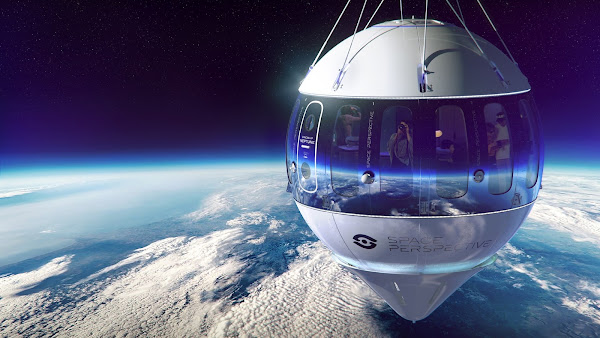The space tourism race is now firing on all rockets, but one company is hoping to carve out a niche as “the only carbon-neutral, zero-emission way” to travel to the edge of space.
Florida-based Space Perspective plans to take passengers up to 100,000 feet for suborbital adventures in a pressurized capsule suspended from an enormous high-tech version of a hot-air balloon. New images released July 27 show the latest patented capsule design for its Spaceship Neptune craft.
Space Perspective aims to begin transporting groups of up to eight passengers on six-hour flights by the end of 2024. That projected time frame has moved from an earlier estimate of the beginning of that year.
As it doesn’t leave Earth’s gravity, no specialist training will be required and travelers will be able to walk around the capsule environment. The company claims the boarding process will be as simple as that of an airplane.
The trips will involve a two-hour gentle ascent above 99% of the Earth’s atmosphere. There’ll then be another leisurely two hours for passengers to enjoy the views from the cabin before the spaceship makes its two-hour descent to the ocean. Voyage to shore will be completed by ship.
Maureen O'Hare
I’m skeptical in general of ‘carbon-neutral’ claims – and here in particular of their projected timeline for the first flight, since the article mentions multiple times that some of their patents are pending and Space Perspective performed a single, uncrewed, test launch to this day. That being said, if this company manages to pull this off, it would be an awesome way to experience near-space, much better than the couple of minutes currently offered by Blue Origin and Virgin Galactic – and an unexpected chapter in the long, and riddled with failures and setbacks, history of airships.

Post a Comment